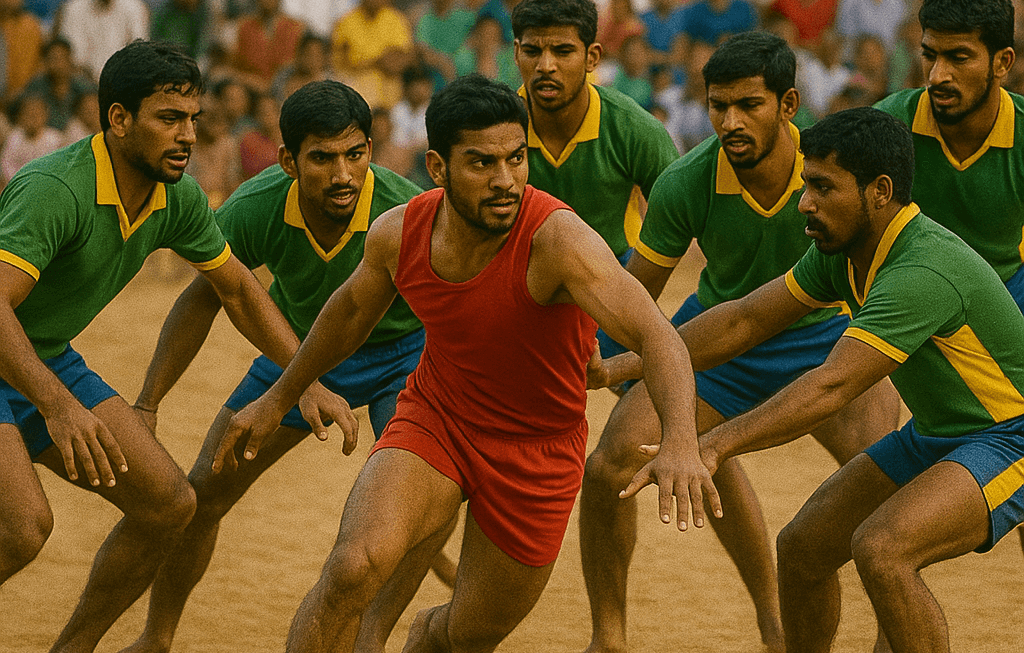Roberto Baggio missed the penalty that cost Italy the 1994 World Cup final. As 100 million hearts broke across the Mediterranean, Brazil’s players didn’t celebrate wildly or mock their devastated opponents. Instead, they quietly approached Baggio, offering consolation to a man whose dreams had just shattered on the biggest stage imaginable. That moment — captured by cameras but felt by souls — represents everything beautiful about sportsmanship in its purest form.
In an era where trash talk gets more highlight reels than humble victories, where social media amplifies every controversy, and where winning-at-all-costs mentality dominates youth sports, sportsmanship might seem like a quaint relic from gentler times. But here’s the twist: true sportsmanship has never been more valuable, more necessary, or more strategically advantageous than it is right now.
When winning isn’t everything — the forgotten art of athletic honor
Sportsmanship isn’t about being soft or accepting defeat gracefully while your competitors steamroll past you. Real sportsmanship is steel wrapped in silk — the confidence to compete fiercely while maintaining respect for opponents, officials, and the integrity of competition itself.
The greatest athletes understand this paradox intuitively. They know that showing respect for opponents doesn’t diminish their competitive fire; it amplifies it. When you acknowledge that your opponent is skilled and worthy, your victory carries more weight. When you demonstrate class in defeat, you earn the kind of respect that transcends scoreboards and championship tallies.
Consider how Muhammad Ali handled his relationship with Joe Frazier. Their trilogy represented boxing at its most brutal and personal, yet Ali’s genuine respect for Frazier’s warrior spirit elevated both fighters beyond mere prizefighters into cultural icons. The competition was ferocious, but the underlying recognition of each other’s greatness created a legacy that outlasted their individual achievements.
The warrior’s code in modern competition
Ancient warriors had codes of honor that governed conduct even in life-or-death battles. Modern athletes operate under similar principles, understanding that how they compete matters as much as whether they win. This isn’t weakness — it’s the ultimate expression of competitive confidence.
Respect as a competitive weapon
Athletes who demonstrate genuine sportsmanship often gain psychological advantages over opponents who resort to gamesmanship or dirty tactics. When you compete with honor, you force opponents to match your level of class or appear petty by comparison. This dynamic can be incredibly powerful in pressure situations.
The long-term relationship building
Sports careers are built on relationships with competitors, officials, media, and fans. Athletes who consistently demonstrate good sportsmanship build reputations that open doors, create opportunities, and provide support networks that extend far beyond their playing careers.
Legendary moments where character trumped championship glory
Some of sport’s most memorable moments have nothing to do with who won or lost, and everything to do with how competitors treated each other when stakes were highest. These instances of pure sportsmanship become immortal because they remind us why we fell in love with sports in the first place.
Derek Jeter’s final game at Yankee Stadium featured something remarkable: opposing players from the Baltimore Orioles genuinely celebrating his career during the game. This wasn’t manufactured sentiment — it was authentic recognition from competitors who had battled Jeter for two decades and understood his impact on baseball’s culture.
The 1992 Olympics provided one of sportsmanship’s defining moments when Derek Redmond tore his hamstring during the 400-meter semifinal. As he hobbled toward the finish line, his father broke through security to help him complete the race. But here’s the detail that gets overlooked: other runners waited at the finish line to congratulate him, understanding that his determination represented everything admirable about Olympic competition.
Tennis has produced countless sportsmanship classics, but none more powerful than Stefan Edberg’s behavior during his rivalry with Pete Sampras. These two completely different personalities — Edberg’s quiet Scandinavian efficiency versus Sampras’s emotional American intensity — treated each other with such genuine respect that their matches became clinics in competitive excellence combined with mutual admiration.
The ripple effect of visible grace
When elite athletes demonstrate exceptional sportsmanship on global stages, it influences how millions of young competitors approach their own sports. These moments become teaching tools that coaches reference for generations, proving that character-defining choices create legacies that outlast any championship trophy.
Media amplification of positive examples
Modern media coverage often emphasizes controversy and conflict, making genuine sportsmanship moments even more impactful when they occur. Athletes who consistently demonstrate class gain media allies who help build their brands and extend their influence beyond pure athletic performance.
Fan loyalty through authentic behavior
Supporters develop deeper emotional connections with athletes who compete with honor and grace. This loyalty translates into sustained popularity, endorsement opportunities, and post-career success that can exceed what pure athletic achievement might provide.
How social media transformed sportsmanship from private virtue to public spectacle
Instagram changed everything about how athletes express sportsmanship. What once happened in private locker rooms or quiet post-game conversations now plays out for millions of followers, turning every gesture of respect or moment of grace into potential viral content.
This visibility creates both opportunities and pressures that previous generations never faced. Athletes can instantly share supportive messages with injured opponents, publicly acknowledge great performances by competitors, or demonstrate leadership during controversial moments. But they also face scrutiny for every reaction, with critics analyzing facial expressions and body language for signs of insincerity.
The democratization of sports media through social platforms means that acts of sportsmanship — or failures of character — spread faster and reach wider audiences than ever before. A high school basketball player who helps an opponent up after a hard foul might find their moment of grace viewed by millions, while a professional athlete’s poor sportsmanship can become an international embarrassment within hours.
Smart athletes have learned to leverage this dynamic by consistently demonstrating authentic good sportsmanship that builds their personal brands while genuinely supporting their sports’ cultures. They understand that social media amplifies everything, so maintaining high character standards becomes even more crucial for long-term success.
Performance authenticity in digital age
Social media audiences have become sophisticated at detecting manufactured moments versus genuine expressions of sportsmanship. Athletes who try to fake good character for social media gain often find themselves exposed and criticized more harshly than those who never pretend to care about sportsmanship at all.
Global reach of local moments
Youth athletes now understand that their behavior might be recorded and shared beyond their immediate communities. This awareness can positively influence how young competitors approach sportsmanship, knowing that college recruiters, potential employers, and broader audiences might evaluate their character based on viral moments.
Brand building through consistent character
Modern athletes who consistently demonstrate good sportsmanship across all platforms and situations build powerful personal brands that attract sponsors, media opportunities, and post-career possibilities that might not be available to equally talented but less admirable competitors.
The economics of good behavior — why sportsmanship pays in modern athletics
Here’s something corporate sponsors won’t tell you directly: they prefer athletes with sterling reputations over controversial stars who might generate more headlines. The mathematics are simple — clean athletes represent lower risk investments with longer-term value potential.
LeBron James built a billion-dollar empire not just through basketball excellence, but through decades of demonstrating leadership, supporting teammates, and treating opponents with respect. His brand power stems from parents trusting him as a role model for their children, executives viewing him as a safe spokesperson, and media partners knowing he won’t create embarrassing controversies.
The endorsement game has shifted dramatically toward athletes who embody positive values while maintaining elite performance. Companies spend millions researching consumer attitudes toward potential spokespersons, and consistently find that sportsmanship matters more to purchasing decisions than pure athletic achievement.
Consider the following economic advantages that good sportsmanship provides:
- Extended career longevity through positive relationships — Athletes respected by peers often receive coaching opportunities, front office positions, or broadcasting roles after retirement
- Premium endorsement rates for family-friendly brands — Companies targeting parents and families pay higher rates for athletes with clean reputations and positive community impact
- International market appeal — Good sportsmanship translates across cultural boundaries, opening global opportunities that might not exist for controversial athletes
- Crisis management advantages — Athletes with strong sportsmanship reputations receive benefit of doubt during controversies and recover faster from negative publicity
- Leadership opportunities within teams and leagues — Organizations promote athletes with strong character to representative roles that come with additional compensation and influence
These financial benefits accumulate over time, often resulting in lifetime earnings that exceed what purely talented but difficult athletes achieve. The compound effect of consistent good behavior creates opportunities that money can’t buy and reputation recovery can’t match.
Cultural differences in defining athletic respect across global sports
What constitutes good sportsmanship varies dramatically across cultures, creating fascinating tensions in international competition where different value systems collide on the same playing fields.
Japanese baseball culture emphasizes group harmony and respect for tradition in ways that can seem rigid to American players accustomed to individual expression and emotional display. When MLB stars play in Japan, they must adapt not just to different playing styles, but to completely different concepts of appropriate behavior and respect.
European football’s sportsmanship traditions differ markedly from South American approaches. The English Premier League’s emphasis on “fair play” contrasts with the passionate, emotional style prevalent in Argentine or Brazilian football, where gamesmanship and psychological warfare are considered legitimate tactical elements.
Tennis provides perfect examples of cultural sportsmanship differences. Scandinavian players like Bjorn Borg and Stefan Edberg embodied stoic, respectful competition styles, while players from more emotionally expressive cultures brought entirely different energy to courts while maintaining their own versions of sporting respect.
These cultural variations create rich complexity in international sports, where athletes must navigate different expectations while maintaining their authentic competitive identities. The most successful international competitors learn to adapt their sportsmanship expression to different cultural contexts without compromising their core values.
Teaching the next generation why how you play matters more than final scores
Youth sports have become battlegrounds where adults project their unfulfilled ambitions onto children who just want to play games with their friends. In this high-pressure environment, teaching genuine sportsmanship becomes more crucial and more challenging than ever.
The most effective youth coaches understand that sportsmanship isn’t something you teach through lectures — it’s something you model through every interaction, every decision, and every reaction to both success and failure. Kids absorb these lessons unconsciously, internalizing approaches to competition that will influence how they handle challenges throughout their lives.
Smart parents recognize that athletic participation offers unique opportunities to develop character traits that translate far beyond sports. Learning to shake hands with opponents after tough losses, to celebrate teammates’ successes, and to respect officials’ decisions creates foundation skills for professional success, relationship building, and personal fulfillment.
The betting angle here is interesting: kids who learn genuine sportsmanship principles become more coachable, more resilient, and more likely to reach their athletic potential. Teams that emphasize character development alongside skill building often outperform more talented but less disciplined groups when pressure mounts.
True sportsmanship never goes out of style because it represents the highest expression of competitive human nature. In a world obsessed with winning at any cost, athletes who compete with honor, respect, and genuine care for their sports’ integrity become beacons that remind us why we love competition in the first place.




